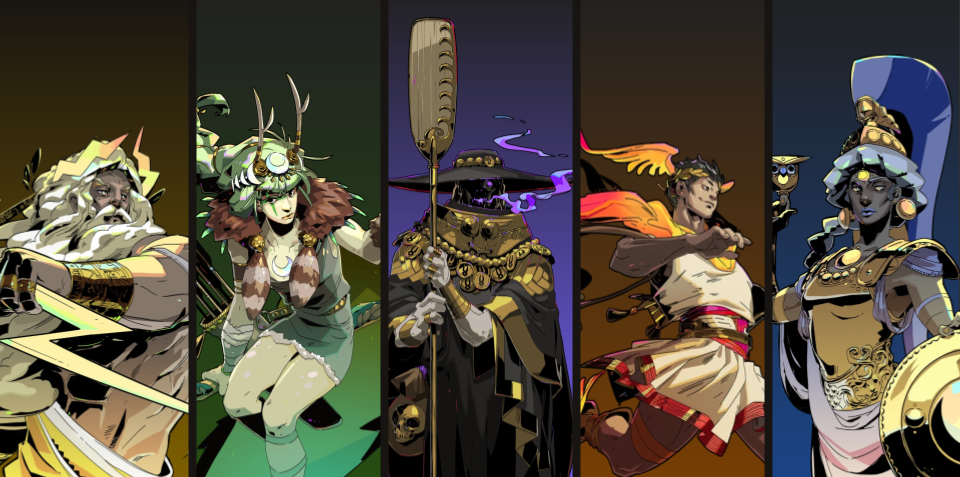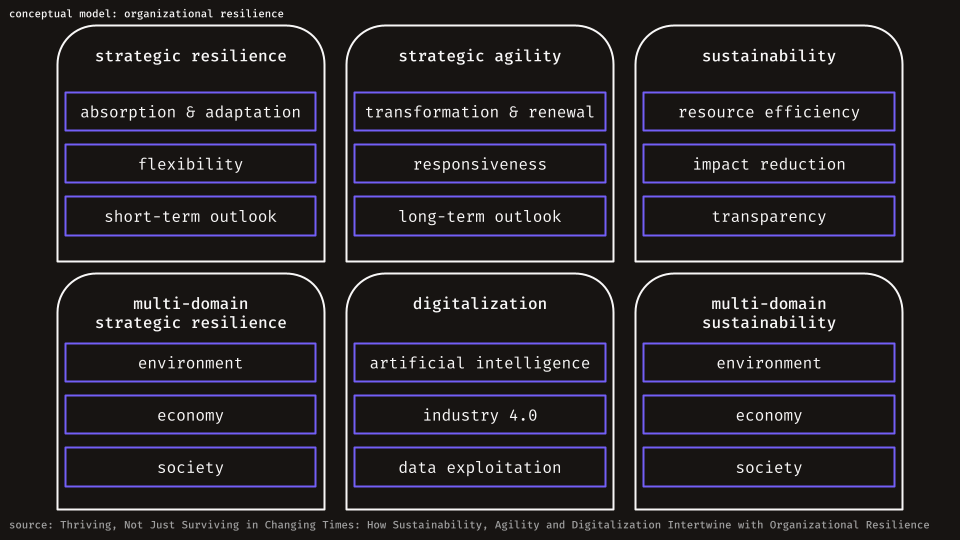❯ Strategy Lessons from Games: Hades
Category: Business
Series: Strategy Lessons
Everyone wants to be a strategist. It's seen as a proxy for intelligence, wrapped up in mystery and mysticism. The more strategy work you do, the more intelligent you must be. Likely not correlated. Yet, perception is reality, and most job functions place an increasing importance on strategic skills to progress. Opportunities are usually limited, either by the position you're in or by design (strategy work is inherently constrained). So, what gives? How do we practice the craft?
Cue games. From Hades to Wingspan, Civilization to soccer, it's the perfect playground to level up. Competition, resource management, disparate and distinct choices, changing environments, execution… all present in games. There's strong analogies between strategy in games and in work. So, I decided to write a series on just that: what lessons in strategy, learned from games, could I apply to my own work?
Let's kick off this series with Hades.
ENTER HADES
Unfamiliar with Hades? The trophy case is impressive. In short, you play Zagreus and attempt to escape Hades' grip. Combine a pre-selected starting weapon with randomly generated perks (called boons), offered by the other Olympian Gods and Goddesses, to blaze a trail toward victory. Lose your run? You restart at home base, without items and boons, to try again. Also, I can't say enough about the artwork. Badass.

My first escape in Hades was run 13. The average is around 35. I like to think beating the average was all brain and reflexes. More than likely, it was too many nights spent staring at a screen. Regardless, I went in with intentionality around being strategic: learning the fundamentals, understanding what makes good builds tick, and when I needed to be choiceful.
Here's what I learned after fifty runs.
FIND STRUCTRUAL ADVANTAGES
Each Hades run starts with one pre-selected choice: your weapon. Six different options that radically alter your core strategy: pick the Fists for close and quick, the Bow for methodical power, the Shield to bring the ruckus, and the list goes on. Each weapon plays different, posing different structural advantages and disadvantages for the run.
Your business strategy should reflect the same insight. The structural realities of your industry and product accentuate aspects of your strategy. Sectors with high barriers to entry face lower chances of competition, but high capital costs and long R&D horizons. NVIDIA's stock jumped 26% in a day after a decade of investment. In Software, velocity is the name of the game. The result? Waterfall development mostly gave way to CI/CD. Understand the landscape's revenue and profit drivers, typical margins, barriers to entry, points of parity, and innovation pipeline for better strategies.
PROBABIILITIES AND BETS
Progressing from Tartarus's smoky chambers to Elysium's lush fields, you develop an intuition for what's needed to succeed. Concentrate on Zeus's boons for up-close damage, but dip into Athena for safety. Combine them to increase the probability of winning. It's thinking in probabilities and bets. Vis à vis card counting, without the bragging rights from a casino banning you.
In the real world, empiricism and planning takes the place of mental math and intuition. Let's say you're in a category or sector with an expected growth of 5% YOY. If your market share is 10%, we can then forecast a range of expected growth and revenue targets. Based on these probabilities, similar to our Hades' boons, we can choose to make bets in certain areas: capabilities that would enable key executions, and key executions that result in better-than-expected performance gains.
RESPOND TO RNG (RANDOMNESS)
Ignoring the constantly-changing environment in Hades can cripple a run. In combat, Zagreus's position is a key source of extra damage to enemies, while floor traps could spell the end to your run. A room with a Daedalus Hammer often means a mid-game shift in boon strategy and opens up new combinations. Progress through Hades is (mostly) totally random, and being responsive to the RNG means winning more often.
Strategies that are more adaptable to fresh thinking, capabilities, and business models will win out more often. Direct to Consumer (DTC) strategies caught legacy consumer good brands flat-footed for years - until digital advertising became expensive and the same legacy companies caught up. Now it's just another channel. Competition and consumers will rapidly change while the environment is often unpredictable (nobody had accounted for a surprise pandemic into their plans). Strategies that can adapt to and (importantly) capture change opportunities translates to higher win rates.

SPEED + EXCELLENCE = MASTERY
Speed separates the wheat from the chaff in Hades. Harder game modes impose a (nausea-inducing) five-minute time limit on each floor for extra challenge. It's the game-equivalent of sprinting a mile. Usually, distinct playstyles emerge: Merciful End from Ares / Athena, Splash Dash from Poseidon / Hermes, or full Cast builds. The faster you can execute these builds with excellence, the less dead and better you will be.
Speed is less about sheer velocity and more about hitting the right timing for the market. It's not always about first mover advantage (although it can be, too). Google stumbled in their go-to-market plan and learned this lesson with Bard's botched launch. The Bard launch happened quickly, but demoed with factual errors and internal miscommunication. Alphabet stock then dropped $100B, taking a hefty hit to their brand along the way. On the other hand, ChatGPT's launch showed mastery through speed and excellent execution. Their trajectory carried them to a record-setting 100M monthly active users in two months.
Structural advantages, probabilities and bets, responding to RNG, and mastery through speed and excellence. Four principles pulled out of a video game that can make us better strategists, researchers, analysts, and marketers.
Snapshot:
You quit your job today.
No map.
An unknown destination.
Navigating uncharted waters.
Boldness and belief was your sail. The certainty that this was the right thing to do, that you were called to something different. A new challenge, faced with courage. I admire your bravery, am inspired by your integrity, and thankful we get to do this together. I'm excited for us, for this next adventure.
I am so proud of you.
Striving for better,
Justin Pichichero